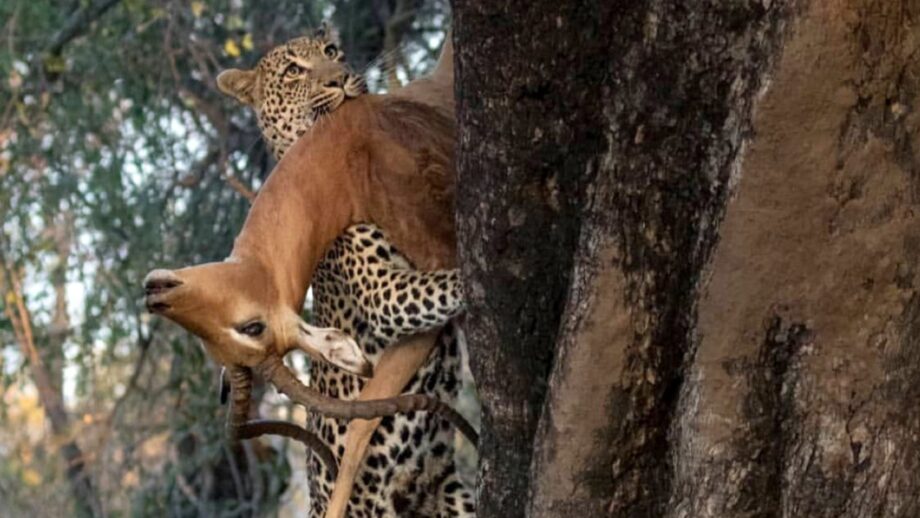A leopard does not always appear in a tree, and it does so significantly less frequently than one might expect. Leopards will climb trees to hoist kills, explore branches that smell like a kill that was previously hidden there, or run from chasing wild dogs, hyenas, or lions. They may simply go up into the canopy to catch a breath of fresh air. Leopards occasionally take refuge among the branches of trees with dense canopies to escape the heat of the day and boost their sense of security.
When they’re near larger cats like tigers and lions, they become exceedingly cautious. As a result, they climb trees to find a safe haven in order to avoid being attacked by a lion or tiger. Both the tiger and the leopard are poor climbers. Leopards are excellent climbers and are terrified of lions and tigers. As a result, they take refuge in a tree for protection. They often bury kills in trees to keep them safe. Take a look at such a video below
Prey storage in trees is more widespread in Africa than it is in Asia. Leopards can avoid taking prey into trees by concealing the carcass in thickets. When leopards take kills into trees, they have trouble starting to feed in their usual manner, which entails “removing the stomach and intestines through a slit made with the teeth along the centre line of the prey’s belly.” They do not do this in trees, and the body cavity ultimately opens, allowing the intestines to fall out or be pulled out.
Let us know what you think about this video & keep reading IWMBuzz.com


